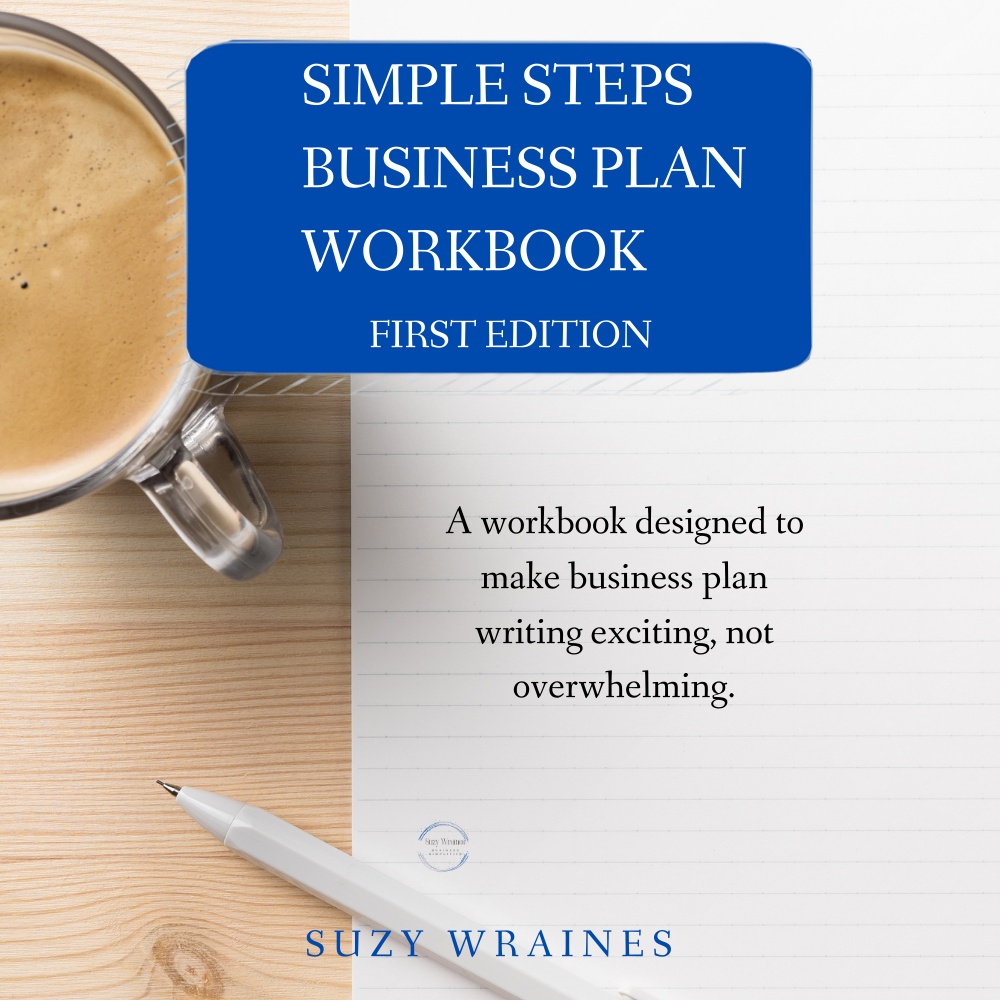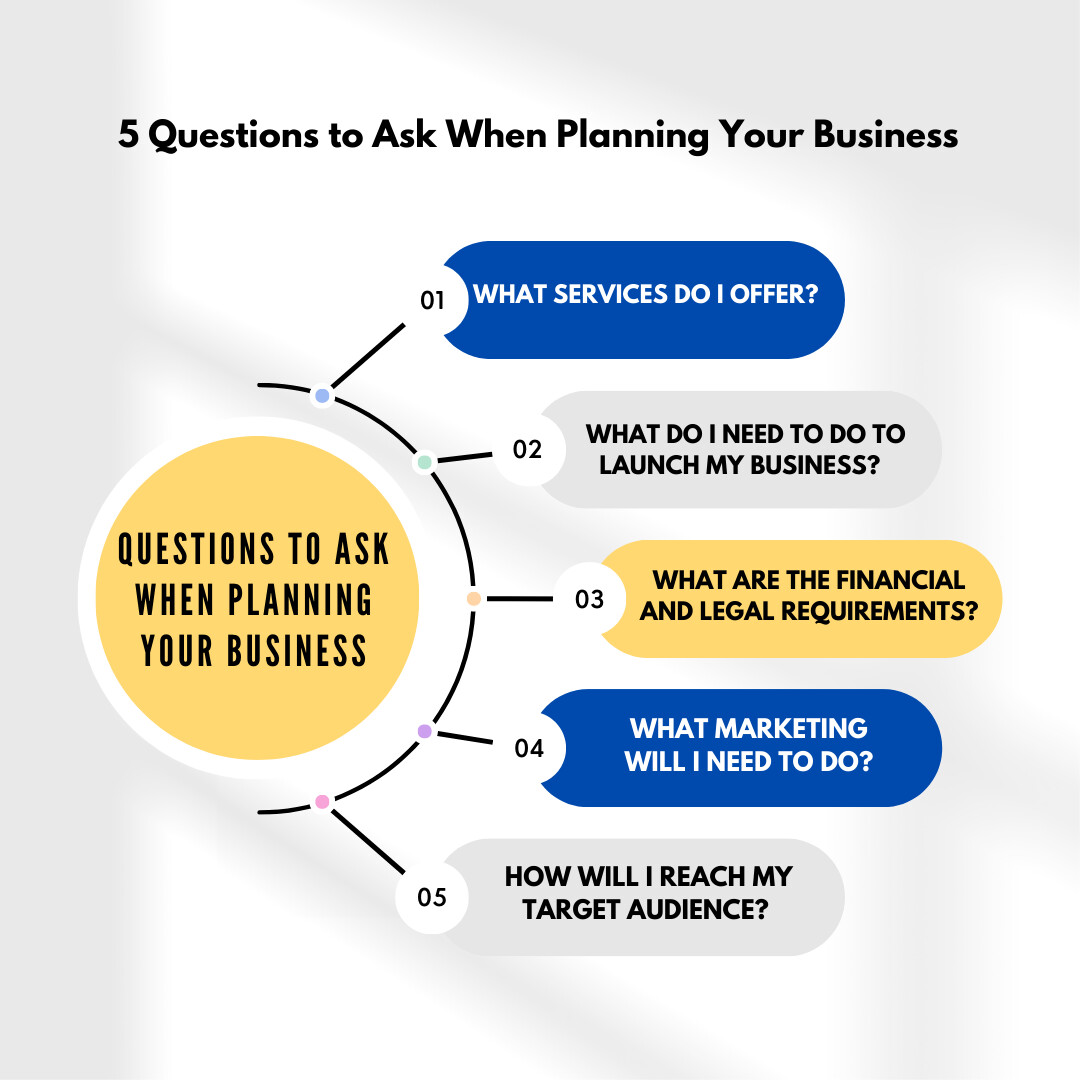
The article was written by: Suzy Wraines
If you are planning to start a business, then it is important that you put together a plan. A business plan will tell you what your goals are, how well they can be achieved and the resources that you need to accomplish them. To many business owners this may be overwhelming to think about. In this article you will see the various steps in the planning process broken down.
Why are business plans important?
Business plans are important because they can provide insight as to what resources will be needed and what the associated costs will be. Establish a clear timeline of when a company can expect to achieve goals and can help a company determine the steps to take to expand into a new market.
Creating a business plan is one of the most important steps you can take to ensure your success as an entrepreneur. It can help you identify and assess your business's strengths and weaknesses, map out a strategic plan, and develop financial projections. Without a well-crafted business plan, you may find it difficult to raise funds or attract customers. Thinking about all of these areas are all part of the planning process.
What is a business plan?
A business plan is a document that outlines the business goals, strategies, and operations of an organization. It includes information such as the company's mission, target market, financial projections, and other pertinent details. A well-crafted business plan can help a startup or established company secure funding, attract new customers, and boost overall success. There are many components that make up a business plan essentials. The five essential components are:
Mission and Vision
Mission and vision are the two most important parts of a business plan. A company must have a mission statement and a vision statement to be successful in the future. Vision statements should be long-term, yet short; they need to describe the things that will happen in your business over time, but not how you will achieve them.
Business Strategy
A business strategy is a plan that describes how you intend to achieve your goals. It should include the steps you need to take for your business to grow, as well as the amount of money you will allocate toward marketing and sales.
Financial Analysis
A financial analysis is a report about numbers and figures that are used to make decisions related to a business. It is a common way of evaluating the financial condition of a company. In order to create an effective financial analysis, you must have all the information available, including the following:
• The details on income and expenses for your business. For example, what are your sales? What are your expenses? How much profit do you make on each sale?
• Your cash flow; how much money comes in (income) and goes out (expenses). You will also want to know how long it takes for these two numbers to balance out. This can be easily calculated by using one of many formulas that are available online or in print books about accounting.

Market Research
Market research is the process of gaining information about the customers and how they behave. This helps companies make decisions about their products, services,
and marketing strategies. Market research can be conducted by asking questions to clients or potential customers, through surveys, focus groups, and interviews.
Operations Strategy
Operations strategy is the process of planning and executing a company's daily business activities. This includes purchasing raw materials, producing products, distributing them to customers, and
collecting payment for these services. A company's operations strategy is determined by its business model. A business model specifies the purpose of a firm, how it makes money and what type of customer it serves.
Business models are often described using the acronym M-C-M' (market – cost – market).
For example, a typical bakery might make bread for sale in grocery stores or sell loaves to other bakeries. For this reason, the bakery will have a different operations strategy than an online retailer that sells baked goods directly to consumers through its website.
In addition to focusing on individual components of an operations strategy as above, it is important to consider synergies between these components when determining them overall.
It is common for companies with multiple lines of business to pursue similar goals and strategies simultaneously while pursuing their own unique methods; however, businesses can also pursue dissimilar goals and strategies at once but still be successful if they do so strategically.
How do I start a business plan?
 Business plans are a critical part of any startup's success. During the business planning process you will outline the business's goals, strategies, and how to achieve them. A well-written plan can help your business stand out from the crowd and attract investment. The business plan executive summary outlines all of these parts of the plan in a short easy to read paragraph.
Business plans are a critical part of any startup's success. During the business planning process you will outline the business's goals, strategies, and how to achieve them. A well-written plan can help your business stand out from the crowd and attract investment. The business plan executive summary outlines all of these parts of the plan in a short easy to read paragraph.Here are tips to get started writing a successful business plan:
- Research. Start by doing your research and know what you're getting into. Make sure you understand the market your company is entering, as well as the competition.
- Consider using a business plan template. This type of document can help you organize your thoughts and set forth measurable objectives for your business. There are many different templates available online or you can download the Simple Steps Business Plan Workbook to get started now.
- Just start! Starting your business can seem like a daunting task, but with the right tools and information, it can be easier than you think. A well-written plan can help you avoid common mistakes and ensure success.
Tips for writing a successful business plan:
- Know your target market. Be very clear about who you want to serve and the product or service that they need or want.
- Research the competition - their products, marketing strategies, etc.
- Think through your sales and distribution channels for selling your product or service. Make sure you know in advance where you will get customers and how many customers you can expect to make each month with this new product or service (also known as "unit economics").
- Decide on your pricing strategy- do you charge fixed price per unit, variable prices based on volume sold, a combination of both? How much should it cost? What is the profit margin necessary to achieve profitability?
- Select a corporate structure that will allow maximum flexibility while allowing you to run the firm as efficiently as possible.
- Finally, write up your business plans in an easily understandable format using the Simple Steps Business Plan Workbook
Once you have a clear vision, begin planning how to get there. Build a strong foundation. Before delving into the nitty gritty of your business, make sure it has sound foundations. Know your industry, understand consumer trends and be familiar with your competition. This will help you create realistic expectations and benchmarks for success. Create measurable goals and milestones.
 In conclusion, writing a business plan is the key to a successful business. By taking the time to create a plan, you are giving your business the best chance for success. A business plan is a key to success. When you are ready to start a business, you need to create a solid plan that outlines what it takes to make your dream a reality. This includes everything from where you will find customers, the products and services you will provide, and how much money each customer spends on your product or service.
In conclusion, writing a business plan is the key to a successful business. By taking the time to create a plan, you are giving your business the best chance for success. A business plan is a key to success. When you are ready to start a business, you need to create a solid plan that outlines what it takes to make your dream a reality. This includes everything from where you will find customers, the products and services you will provide, and how much money each customer spends on your product or service.The steps outlined in this article will help you create a plan that is tailored to your specific business. So, what are you waiting for?Get started now!
















0 Comments